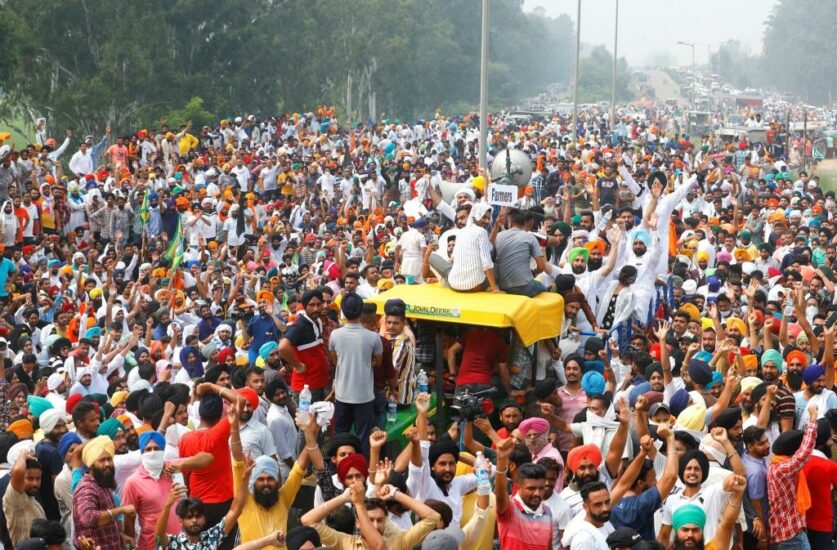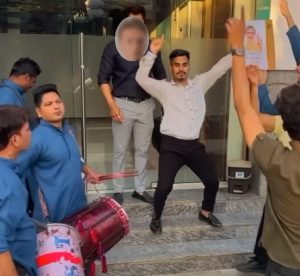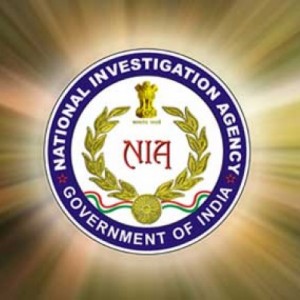Meek Political Surrender

Prof. Vilas Adhav and Prof. RS Deshpande
Pune, 23rd December 2021: The decision to withdraw the three farm Acts does not reflect the personality of Narendra Modi both has a political leader and as face-of the party he represents. The meek surrender to the farm leaders was quite unexpected and politically an unwise decision.
If this was to be done, he could have got it done on the negotiation table almost a year back and that would have provided him more political mileage. Three fallouts are quite important out of this decision of the Prime Minister.
First, it is going to be interpreted as a political decision keeping in view the future assembly elections but the farmer leaders will be relentless to continue their agitation till the time the elections are done.
Second, while passing the Act and defending it strongly, the Prime Minister has time and again insisted that farmers are exploited by the middlemen and market intermediaries. Now with the decision to withdraw this Act, the Prime Minister has indirectly put the small and medium farmers to the same sharks meekly leading to his inability to protect the weaker farmers. Third, he has cleared the way for withdrawing any other law passed by the Parliament, through similar agitation which is funded by the parties interested from outside. This can happen anytime and for any Act passed by the Parliament like CAA, such process will be quite detrimental to the progress of the country. Politically, this is interpreted as a wise decision but on the contrary, this will represent Modi as a meek personality and not a decisive Prime Minister as he was portrayed earlier.
The agitation, cordoning Delhi went on for a full year and the participants braved all weathers. There are deaths reported from the site of the agitation and maybe a few of them have died braving the weather. The agitators were adamant aiming only at the withdrawal of the three farm Acts. In any protest, the aggrieved parties come to some negotiable points, and here too initially there were some attempts. But the wish list went on changing and finally the agitators were unwavering about repealing the Acts. The agitators closed all the doors of negotiations and obstinately demanded the withdrawal. This does not happen in any democratic State unless the majority in the parliament feels that way or the Government changes.
Keeping in view the continuous exploitation of the farmers at the hands of the middlemen and the market functionaries, quite widely elaborated in many committees from 1992 onwards. Most of the study groups indicated removing the market imperfections in APMC. The three laws included i. Farmer’s Produce Trade and Commerce (Promotion and facilitation) Bill 2020; ii. Farmer’s (Empowerment and Protection) Agreement on Price Assurance and Farm Services Bill 2020; iii. Essential Commodities (Amendment) Bill, 2020.
The first Act provides free Intra-State and Interstate trading of produce; Traders only with PAN get recognised; Payment not to delay beyond 3 days; No market Fees, Cess or any other Charges; and Dispute Resolution Mechanism in place. The second law promises Contract farming with a fully secured safety net for farmers. Farmer and sponsor may enter into an agreement as per their agreed clauses. This requires the contractor to be specific about Grade, Price, Quality, Delivery time and picking up of produce. The law prohibits any leasing or transfer of land of the farmer. The third Act is about controlling speculation to get hedging advantages and there are two triggers of Price Difference placed here 100% rise in price in case of perishables and 50% price rise in case of grains etc.
There is a long history of these reforms in the Agricultural Marketing sector and that begins with the High-power Committee in 1992, Working Group of 12th Plan and S S Acharya Committee under UPA, Model APMC Act of 2003 and modified in 2007, Committee of the Agricultural Ministers of the States 2011, Gokul Pattnaik Report 2011 and finally, the High Power Committee of Chief Ministers recommending reforms on similar lines. The Committee of Chief Ministers also cleared this idea.
Farmers are certainly incentivised through MSP observed specifically in three states namely Punjab Haryana and Uttar Pradesh. The marketing process has led to the development of very strong links between the “operators and the clients”; The procurement is plagued with lots of corruption in grading and weighing. The Situation Assessment Survey of farmers taken in 2002 by NSSO clearly states that only 19 percent of the farmers are aware of the Procurement Centres. Freedom to sell anywhere and to anybody is a farmer’s basic right established by this law. Similarly, storage and stocking of grains to a certain limit are also important for the availability of the commodity market at the time of emergency. But the limit of such commodities stocking should be decided by the trigger of the price and exactly that is done by the law. Contract farming has always been present and up to now, contract farming has been unprotected where the contractors had the upper hand on the farmers. The law provides protection against land allegations as well as the terms of the contract including arbitration by an independent agency.
When the farmers had come to the negotiating table at that time negotiators should have suggested that the Government of India issues an advisory to all the State Governments, that the Farm Laws passed by the Parliament be discussed in the State Assemblies and each State Government may take appropriate decisions about implementation. This would have wanted farmers’ worry as the Union Government will not be responsible for implementing these Acts in any of the States if the farmers of the State are unwilling about that. This should be informed to the Union Govt by respective State Governments. Many doubts were clarified like MSP shall not be removed and so also APMC.
MSP could be made mandatory for any purchaser not to buy below MSP, and if the farmer reports so the State Government should take stringent action in such cases. Implementation of this shall be the responsibility of the State Government. Besides, implementation of MSP and procurement shall be totally a joint responsibility of the State and the Union Government, and Union Government may allocate proportionate funds for this purpose.
In the hurry to withdraw these Acts, the Prime Minister and his party committed multiple political as well as economic injuries. This has given legitimacy to adamant agitations and the chain may continue in future. It is not necessary that the agitators will be happy with the decision of the Union Government and as they saw the meek face of their strong leader, the new agitators will pick up different issues. Finally, the withdrawal of these laws certainly goes against many farmers except those who have their clouts in Mandis and APMCs.
Everyone knows that there are farmer groups who have their cartels operating in a PMC as well as in the Mandi everywhere in the country. Certainly, Modi has hurt his image as a strong leader, giving good fuel for future elections. That will be an unfortunate fallout and medium, small and marginal farmers from many States resent that.










